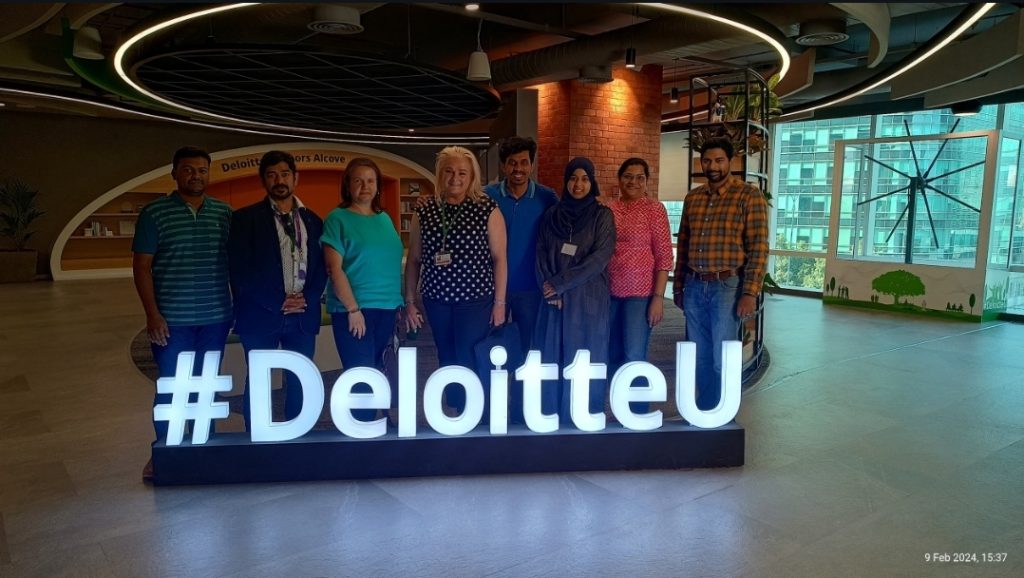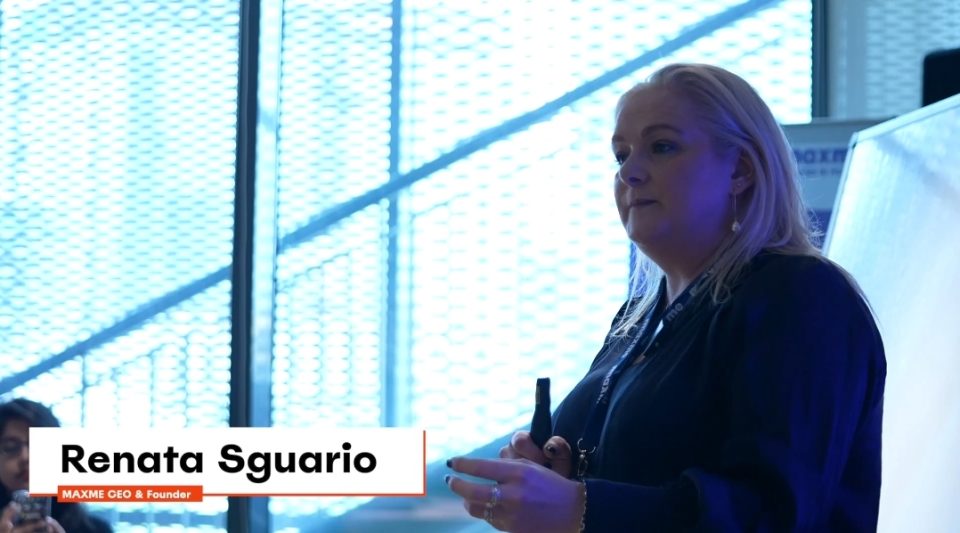In the age of automation, AI, and accelerated digital transformation, one often overlooked factor continues to define the difference between great customer experiences and average ones: human skills.
Maxme, an Australia-based human-tech company, is making bold moves to address this often underdeveloped space—especially in India, where the future of work is evolving rapidly. With a sharp focus on soft skills such as communication, emotional intelligence, leadership, and resilience, Maxme’s programs—Aquila, Altus, Flareo, and MaxInUs—are being adopted by leading Indian organizations to create human-first cultures that drive real business outcomes.
But what makes soft skills so crucial to CX? Why are HR teams prioritizing them more than ever? And how is Maxme helping businesses reimagine their talent strategies not just for today, but for a fast-approaching future?
To explore these pressing questions and more, cxquest.com sat down with Renata Sguario, the dynamic founder and CEO of Maxme. With deep experience in CX, talent development, and performance leadership, Renata shares her vision for the “human operating system” every future-ready organization needs—and why the time to act is now.
Context and Purpose
Q1. Renata, thank you for joining us. Let’s start with the basics—what sparked the creation of Maxme, and why focus so deeply on soft skills?
RS: I spent 30 years leading technology and transformation inside banks and telecommunications. Time and again, projects failed not for lack of code but for lack of curiosity, courage and communication. I founded Maxme to prove that human “soft” skills are hard currency: they move NPS, churn and EBITDA just as surely as any new tech platform.
Q2. You’ve said the future of work is “human-first.” What does that mean in practical terms for CX and EX (employee experience)?
RS: Technology should amplify – not replace – our uniquely human edge. In practice, that means building every journey around empathy, clarity and trust: bots sweep up the routine; people handle the nuance. Crucially, employee experience (EX) is the engine room of customer experience (CX). When teams are coached in listening, curiosity and respectful challenge, engagement rises – and engaged people deliver better service. Research shows that companies with highly engaged employees grow revenue 2.5 times faster than those with disengaged staff, underscoring the direct commercial link between strong EX and standout CX – leaders need to reward listening as loudly as they reward tech upgrades.
Programs Mapped to Industry Challenges
Q3. How do your programs—Aquila, Altus, Flareo, MaxInUs—map to current industry challenges, particularly in the Indian context?
RS: Aquila targets graduate hires in sectors like IT services and BFSI, where technical skills are high but collaboration is low.
Altus fast-tracks new team leads – critical in India’s hyper-promote cultures – to manage without micromanaging.
Flareo equips frontline managers in sectors like retail BPO, where turnover is punishing and every interaction influences CSAT.
MaxInUs is our team-strengths analytics platform. Each employee completes our EQ & Strengths Discovery phase, then MaxInUs rolls the data into weekly dashboards that show collective strengths, gaps and potential derailers. Leaders can see where collaboration will flow, where silos might form and how to build psychologically safe, high-performing teams.
CX and Soft Skills
Q4. From a CX lens, why are soft skills more critical than ever in today’s digital customer journeys?
RS: Because digital strips away the excuses: product features level quickly; price can be copied overnight. The only moat left is how a customer feels during – and after – the click. Empathy, creative problem-solving and clear storytelling decide whether that chat window ends in “add to cart” or “close tab.”
Q5. Can you share a few real-world examples of how improved soft skills have directly impacted customer satisfaction, loyalty, or NPS?
RS: ● NAB India: a 7-week “Emerging Leaders” cohort saw 100 % positive feedback on self-awareness and communication, with leaders reporting sharper sprint ceremonies and faster issue resolution.
● Custom Fleet: a 9-week female-leadership program lifted self-awareness 27 % and posted an NPS of 76—mirrored six months later in a five-point uptick in customer NPS for the same business unit.
● Across all partners, participants average a 25 % jump in confidence and on-the-job behaviours that drive first-contact resolution.
Q6. In your experience, what are the most undervalued soft skills in CX roles, and why?
RS: Deep listening (everyone nods, few actually do it), disciplined curiosity (asking the second question), and emotional intelligence – the ability to recognise the customer’s real emotional state, regulate one’s own reaction in the moment, and adapt tone and language so the interaction feels genuinely human.
Organizational Change
Q7. What role are HR teams and CX leaders playing in this shift toward human-first transformation?
RS: HR owns the systems – hiring, learning, reward – while CX owns the feedback loop. When they co-author a skills blueprint, CX insights feed directly into capability sprints, and HR data proves ROI in language the CFO loves.
Q8. How do you measure the impact of soft skills programs on business performance, particularly from a CX perspective?
RS: We track three layers:
1. Human Skills Benchmarking before/after each module/program.
2. Manager sightings (“Did you see Ren achieve X behaviour this week?”).
3. Business ROI – for CX that’s NPS, average handle time or digital adoption. NAB’s pilot, for example, correlated improved dialogue skills with a measurable lift in sprint velocity and engagement.

Q9. What challenges do organizations face when integrating these programs, and how does Maxme help overcome them?
RS: ● Time-poor: our micro-lessons live inside our proprietary Hodie App, fifteen minutes a day.
● Skepticism & Measurability: we share live dashboards from day one via MaxInUs that tie micro-behaviours to hard CX metrics such as NPS – proof while the program is still running, not six months later. Individuals see self-development as they identify and lean into their strengths. Leaders see numbers move, not just smiles.
● Hard-skill bias: Many firms still hire and promote on certificates alone. Maxme’s collective-strengths analytics reveal capability gaps a résumé can’t, helping leaders rebalance teams for creativity, collaboration and problem-solving.
● Limited budget or bandwidth: Smaller businesses worry about classroom costs and time away from the floor. Maxme programs are tailorable and hybrid – fifteen-minute mobile lessons, cohort coaching and gamified nudges via the Hodie app.
The Broader Future
Q10. Your press release mentions that 43 out of 56 future-critical skills are human, not technical. Can you unpack that for us?
RS: The World Economic Forum’s Future of Jobs 2025 lists 56 capabilities employers say will matter most by 2030; 43 sit under categories like analytical thinking, empathy, resilience and influence. Translation: tech skills get you in the door, human skills accelerate you up the lift.
Q11. How do you see Maxme evolving over the next 3–5 years in India and globally?
RS: India is the heartbeat of our growth strategy, and my vision is clear: empower every emerging and future leader – from a Year 8 classroom in Chandigarh to a CX team in Bengaluru – to master the human skills that move markets. Over the next five years you’ll see three big moves:
1. Soft skills are a national business imperative.
With AI flattening technical advantages, companies that invest in communication, collaboration and resilience are already out-innovating their peers. Demand is exploding, so we’re scaling capacity – training additional coaches, local delivery partners and the hybrid models to implement this up-skilling.
2. Maxme for Schools & Universities.
We’re aligning our student programs with the National Education Policy 2020, which calls for holistic, 21st-century life skills such as critical thinking and teamwork. Teachers will plug our bite-sized modules straight into timetables or over school holidays without requiring extra resources, giving students an early, equitable start on the skills employers prize.
3. Predictive, human-centred analytics everywhere.
We’re layering MaxInUs into HR leaders, enabling “people insights” that flag gaps to build better, stronger teams.
Ultimately, the future of India is human, and our job is to make sure those humans have every tool they need to thrive.
Advice to CX Leaders
Q12. Lastly, if you could give one piece of advice to CX leaders looking to future-proof their teams—what would it be?
RS: Treat human skills as non-negotiable infrastructure. Start with a pilot – one team, one behaviour, seven weeks – and tie it to a hard CX metric. Share the win loudly. Culture shifts when results do.
Maxme Philosophy
As digital transformation accelerates, the irony is clear: the most future-proof investment is not in more tech—but in people. What Maxme is bringing to the table isn’t just a set of training programs—it’s a philosophy grounded in empathy, empowerment, and enduring impact.
Renata Sguario’s vision isn’t just about helping individuals develop communication or leadership—it’s about enabling organizations to unlock the full potential of their people, thereby elevating customer experience in ways that are sustainable, scalable, and deeply human.
For CX leaders, HR innovators, and business strategists alike, Maxme’s work is a timely reminder: the future isn’t just about data, speed, or automation. It’s about people—and the skills that make us distinctly, powerfully human.

